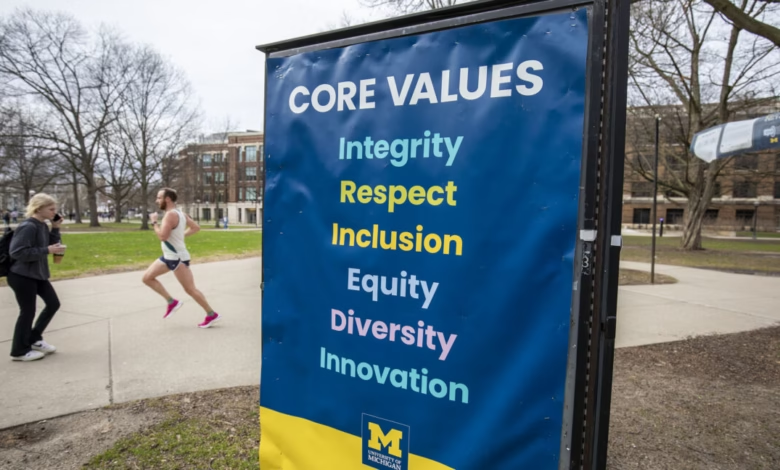
▼ Summary
– A University of Michigan researcher’s NIH grant funding was delayed after the university placed it on hold due to legal concerns about new award terms.
– The University of Michigan, a top NIH funding recipient, froze some or all incoming NIH grants starting in late April 2024.
– University officials cited concerns about new NIH language tying grant compliance to civil rights laws and a gender-related executive order under the False Claims Act.
– The university declined to comment on the freeze, directing inquiries to its research website instead.
– The situation reflects broader struggles universities face in adapting to recent federal directives affecting NIH funding.
The National Institutes of Health (NIH) has sparked concern among universities with recent changes to grant agreements, leaving institutions scrambling to address potential legal risks. At the University of Michigan, one of the top recipients of NIH funding, researchers faced unexpected delays as administrators grappled with revised terms in grant notices.
Earlier this year, a biomedical scientist at the university received approval for NIH funding, only to discover the grant was put on hold. The reason? Updated language in the Notice of Award, which now includes provisions tying compliance with civil rights laws and a January executive order on gender to liability under the False Claims Act. This 19th-century statute imposes penalties for submitting false claims to the government, and universities fear unintended violations could expose them to costly legal battles.
Internal communications revealed that Michigan administrators paused numerous NIH grants, possibly affecting hundreds of millions in research funding. While the university declined to comment, sources confirmed the freeze began as early as April. Similar concerns may be rippling through other institutions, though the full scope remains unclear.
Much of the public debate around NIH funding has centered on the Trump administration’s actions, such as cutting grants tied to alleged Title VI and IX violations or redirecting funds away from certain research areas. However, the situation in Ann Arbor highlights a quieter but equally significant challenge: universities navigating shifting federal requirements while trying to protect their researchers and budgets.
The broader implications remain uncertain, but one thing is clear, academic institutions are being forced to reassess their relationship with federal funders. As policies evolve, universities must balance compliance with their commitment to advancing scientific discovery.
(Source: Ars Technica)

